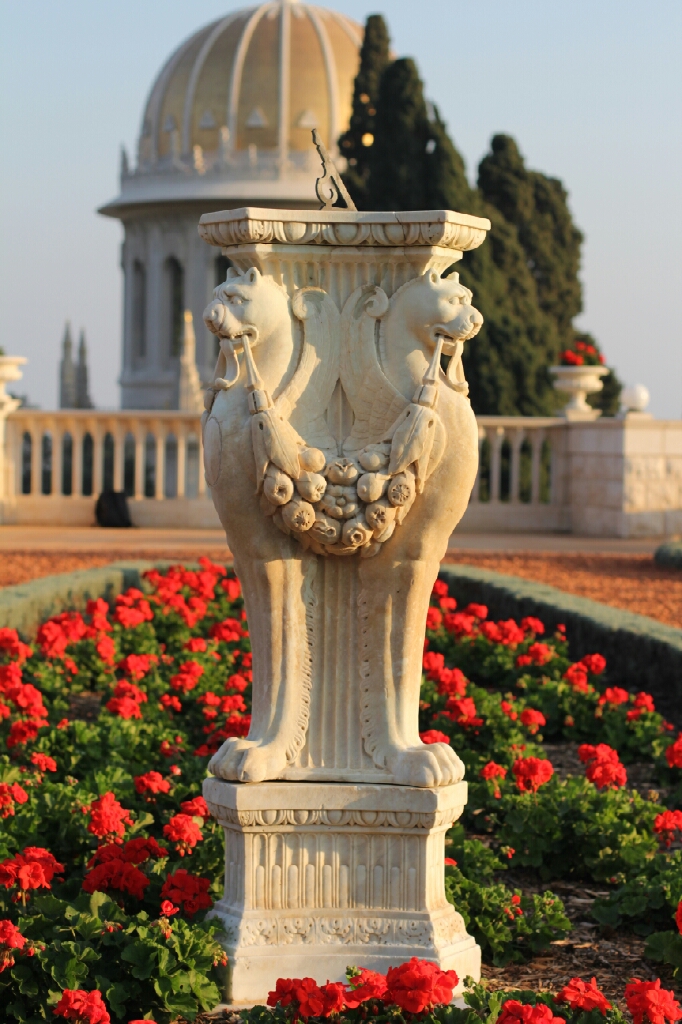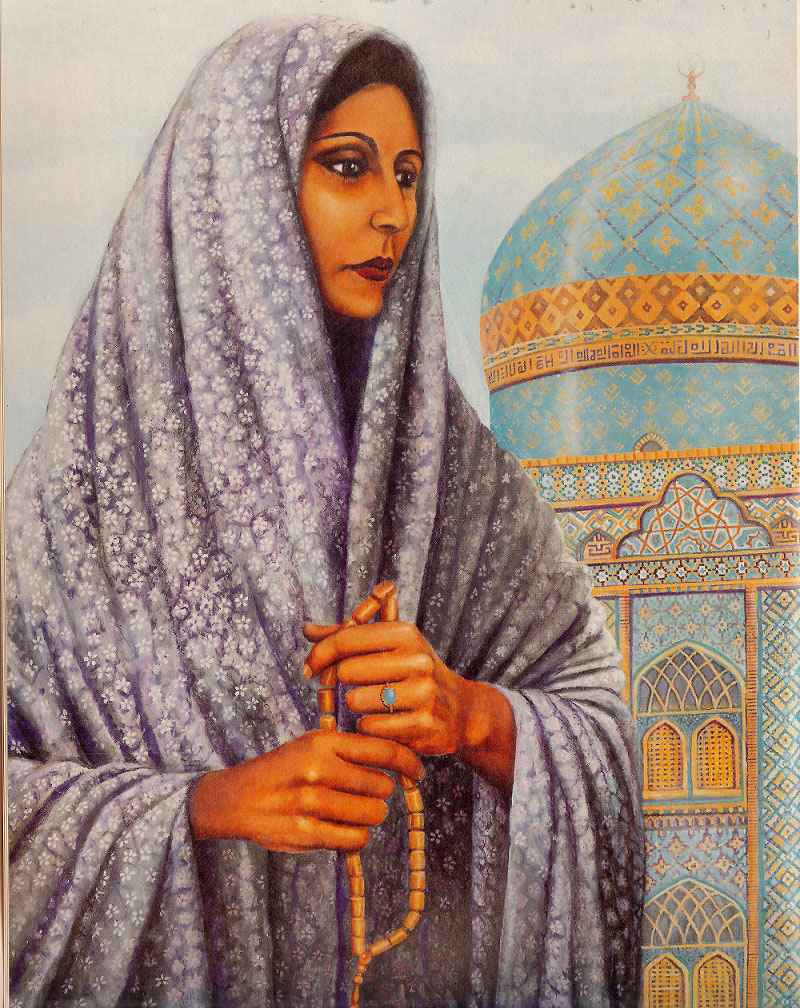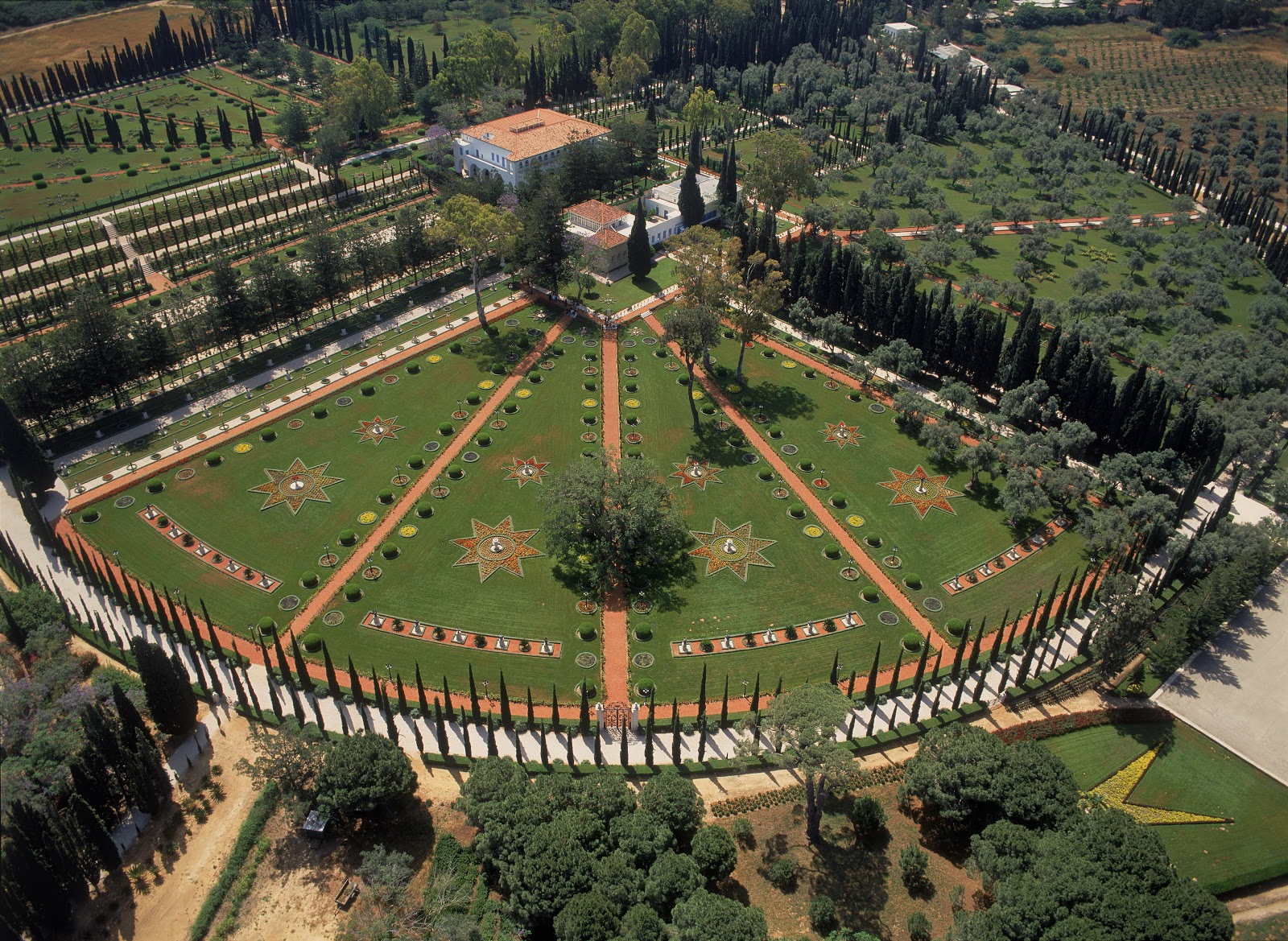“The purpose of religion as revealed from the heaven of God's holy Will is to establish unity and concord amongst the peoples of the world; make it not the cause of dissension and strife.”
—Bahá'u'lláh
The Báb - Herald of the Bahá'í Faith

[The Shrine - Shrine of the Báb]
The Bahá'í Faith has its roots in Persia. In the mid-1800s, when countries in Europe and North America were beginning a period of unprecedented technological, material, and political advancement, this once- glorious land was mired
in political and religious corruption.
This was a time of great religious expectation. Faiths and traditions around the world had long anticipated the appearance of a Promised One.
In 1844, in Shiraz, Persia, a young
merchant, Siyyid ‘Alí-Muhammad, referring to Himself as the Báb, meaning “the Gate,” proclaimed that He was the bearer of a new revelation from God. The Báb called for people to seek truth for themselves and prepare for “Him
Whom God shall make manifest,” another Divine Messenger, greater than Himself, Who would soon appear to guide humanity towards global justice, unity, and peace.
The Báb wrote extensively. He composed eloquent prayers and
profound commentaries, many of which spoke of the coming Divine Teacher. He called for the advancement of women and encouraged universal education and the study of science—radical ideas at the time.
Perceiving this progressive
new Faith as a threat, the Báb was imprisoned and tortured, and thousands of His followers were killed, setting a precedent for waves of religious persecution of the Bahá'ís that continue to the present day. Despite all attempts
at repression, however, the movement spread like wildfire.
One of the Báb’s most courageous followers was the poet, Táhirih, who sought to transcend restrictions placed on her as a woman in a traditional society. She gave her life for the cause of the Báb. “You can kill me as soon as
you like,” Táhirih told her assassins, “but you cannot stop the emancipation of women.”
In 1850, the Báb’s six-year ministry was cut short when He was executed by firing squad in a public square in Tabriz. The light the
Báb had lit in the land was not so easily extinguished, however. His followers persevered. The shattered remains of the Báb’s body were rescued and moved from place to place by His followers for nearly 60 years until they could
be fittingly laid to rest.

[Tahirih - Táhirih, the first female follower of the Báb and a poet]
Bahá'u'lláh
Bahá'u'lláh, “the Glory of God,” is the Promised One foretold by the Báb and by the Divine Messengers of the past. His teachings affirm humanity’s eternal relationship with the Divine and provide a vision of the future which has inspired
millions from every part of the planet and every walk of life.
Bahá'u'lláh delivered a new revelation from God. His mission was to spiritually re-awaken humanity and unite all the peoples of the world. Bahá'u'lláh’s teachings
form the basis of the Bahá'í Faith and offer a vision of infinite hope and healing for the world.
In His writings, Bahá'u'lláh outlines a framework for the development of a global civilization that takes into account both
the spiritual and material dimensions of human life. He offers a vision of a world where the recognition of the oneness of humanity ultimately leads to lasting justice, peace, and prosperity.
“My object is none other than the betterment of the world and the tranquility of its peoples.” —Bahá'u'lláh
For this noble purpose, He endured a life of persecution, imprisonment, torture, and exile. Bahá'u'lláh’s imprisonment began in Persia in 1852 when, as a supporter of the Báb, He was arrested, tortured, and cast into a subterranean
dungeon, Tehran’s notorious Síyáh-Chál, the “Black Pit.”
It was during this imprisonment, through the foul prison air, filth, and pitch-black darkness, that the first stirrings of a divine revelation came to Him. As Bahá'u'lláh
sat with His feet in stocks and a 50- kilogram iron chain around His neck, the Holy Spirit of God was revealed to Him.
It was in ‘Akká that Bahá'u'lláh wrote some of His most important works, addressing the
kings and rulers of His day, and revealing the laws and principles that would lead humanity into an era of universal peace. “The earth is but one country and mankind its citizens,” He wrote.
“It is not for him to pride himself who loveth his own country, but rather for him who loveth the whole world.” —Bahá'u'lláh
As time passed, local authorities relaxed the conditions of Bahá'u'lláh’s imprisonment and He moved a short distance north to Bahjí, where He spent the last 12 years of His life. During this period, Bahá'u'lláh made several visits
to the nearby slopes of Mount Carmel where, in 1891, He designated a permanent resting place for the remains of His Forerunner, the Báb.
In 1892, after a brief illness, Bahá'u'lláh passed from this life at the age of 75.
His earthly remains were laid to rest in a small building next to His final residence in Bahjí. The burial sites of the Báb and Bahá'u'lláh have become sacred shrines and places of pilgrimage for Bahá'ís from around the world,
who visit them to draw spiritual strength and inspiration, and to dedicate themselves to the work of creating the transformed world Bahá'u'lláh envisioned.

[Bahji - Aerial view of the Shrine of Bahá'u'lláh, Mansion of Bahjí and surrounding gardens]